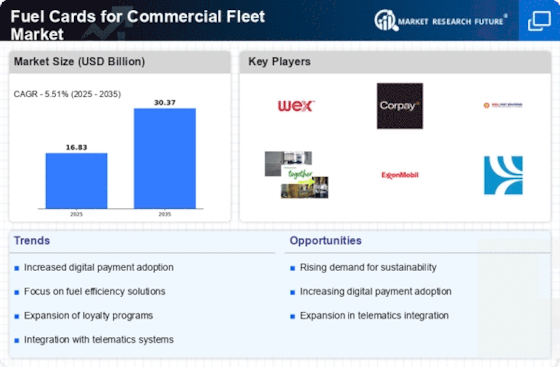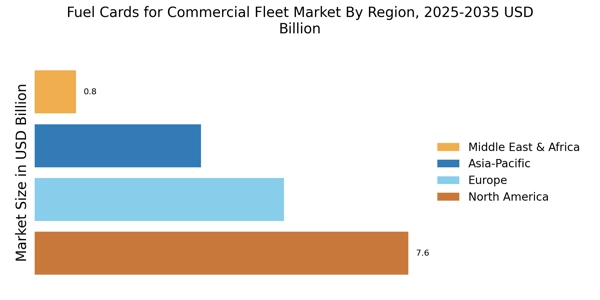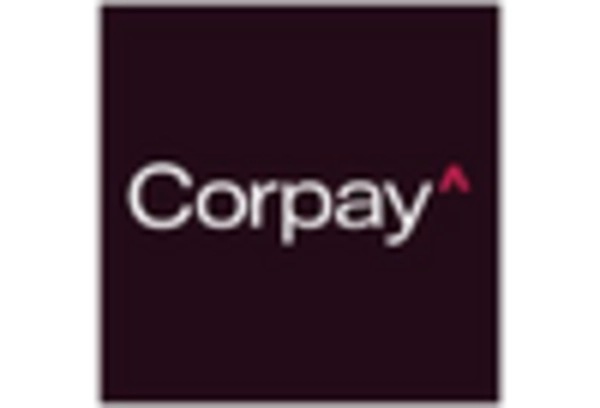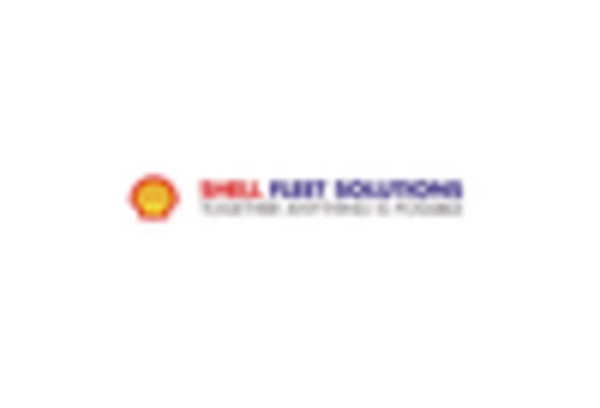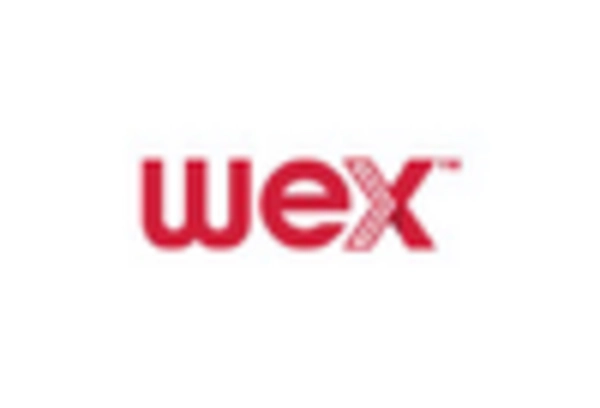Regulatory Compliance
The Fuel Cards for Commercial Fleet Market is significantly influenced by the need for regulatory compliance. Governments worldwide are implementing stricter regulations regarding fuel usage, emissions, and reporting standards. Fuel cards that facilitate compliance by providing accurate transaction records and emissions data are increasingly sought after by fleet operators. In 2025, it is expected that compliance-related features in fuel cards will become a standard requirement for many fleets, as non-compliance can lead to substantial fines and operational disruptions. This regulatory landscape not only drives the adoption of fuel cards but also enhances their value proposition in the market.
Cost Control Mechanisms
Cost management remains a critical driver in the Fuel Cards for Commercial Fleet Market. With fluctuating fuel prices and economic uncertainties, businesses are seeking effective ways to control fuel expenditures. Fuel cards provide detailed reporting and analytics that help fleet managers identify spending patterns and implement cost-saving measures. In 2025, it is anticipated that companies utilizing fuel cards could reduce fuel costs by approximately 10% through better monitoring and strategic purchasing. This financial advantage is particularly crucial for small to medium-sized enterprises that operate on tighter budgets, making fuel cards an indispensable asset for maintaining profitability in a competitive market.
Enhanced Security Features
Security concerns are becoming a paramount consideration in the Fuel Cards for Commercial Fleet Market. As incidents of fuel fraud and unauthorized transactions rise, fleet operators are prioritizing security measures. Fuel cards equipped with advanced security features, such as PIN protection and real-time transaction alerts, are gaining traction among businesses. In 2025, it is projected that the demand for secure fuel card solutions will increase by 25%, as companies seek to safeguard their assets and reduce losses. This heightened focus on security not only protects fleet operators but also fosters trust in fuel card providers, thereby driving market growth.
Sustainability Initiatives
The growing emphasis on sustainability is reshaping the Fuel Cards for Commercial Fleet Market. Companies are increasingly adopting eco-friendly practices, which include optimizing fuel usage and reducing carbon footprints. Fuel cards that offer insights into fuel efficiency and emissions tracking are becoming more appealing to businesses aiming to meet regulatory requirements and corporate social responsibility goals. In 2025, it is projected that fleets utilizing fuel cards with sustainability features could see a reduction in emissions by up to 15%. This shift towards greener operations not only aligns with global environmental goals but also enhances brand reputation, making fuel cards a pivotal component in sustainable fleet management.
Technological Advancements
The Fuel Cards for Commercial Fleet Market is experiencing a surge in technological advancements that enhance operational efficiency. Innovations such as mobile applications and real-time tracking systems allow fleet managers to monitor fuel consumption and vehicle performance seamlessly. This integration of technology not only streamlines administrative tasks but also provides valuable data analytics, enabling companies to make informed decisions. As of 2025, it is estimated that the adoption of advanced telematics in fleet management could increase by 30%, further driving the demand for fuel cards. These technological enhancements are likely to improve overall fleet productivity and reduce operational costs, making fuel cards an essential tool for modern fleet management.


